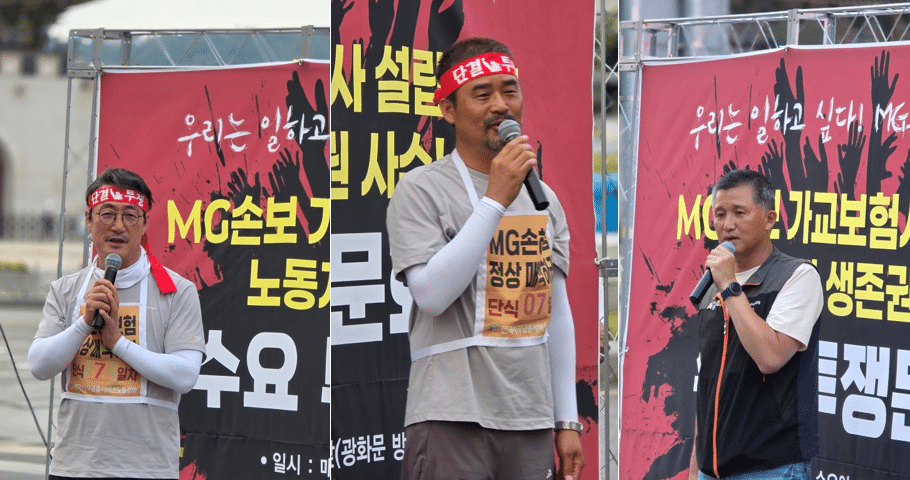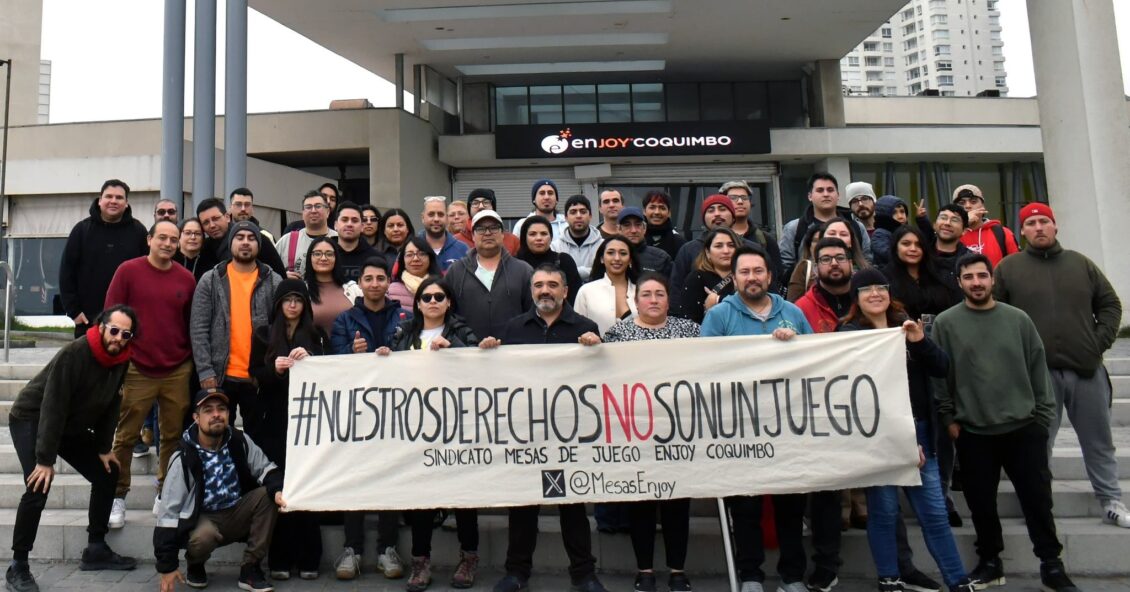Amazon Newsletter Spring 2025 – Extended Content
18.03.25
In January, Amazon announced the closure of all seven facilities in Quebec following a successful union vote in 2024. In recent weeks, workers at a Whole Foods store in Philadelphia voted to join the United Food and Commercial Workers union, the first time since Amazon bought the chain. For more see below.
Other news includes a US Senate critique of Amazon’s health and safety record and research from Amazon’s corporate employees on the company’s climate claims and employee satisfaction. This newsletter also includes details of upcoming labour rights-related shareholder resolutions filed at Amazon for 2025.
Organizing updates
Canada – Amazon plans to close operations in Quebec – the only location in Canada with a unionised workforce
On January 22nd, Amazon announced plans to exit its operations in Quebec with immediate effect. The company plans to close all seven of its warehouses and move to a third-party warehouse model in Quebec – in contrast to the direct ownership model it prefers to use across its global operations. Amazon’s announcement to exit Quebec comes just as the company was due to face a binding arbitration process which would have compelled the company to agree to a first contract with the negotiating union. The decision also comes just five years after the company begun to expand its warehouse footprint in the province and less than a year after the first union was formed at a site in Laval. For more information about this story and to add your organisations support to an investor letter to the company, please contact Rachel.Hargreaves@ext-uni.org
Amazon claimed the decision to exit Québec was motivated by a need for cost savings. However, the Confédération des Syndicats Nationaux (CSN), the union representing roughly 230 workers at the only unionised warehouse facility in Canada, have argued that the company’s decision is directly linked to its anti-union stance and reluctance to accept the formation of a union last year. The closures comes just as the union was due to request a binding arbitration process (a provision under Québec labour law) which would have compelled Amazon to agree a contract with the union. CSN have since filed a lawsuit against Amazon for failing to comply with national labour law, similar to the case brought against Walmart in 2014 which the company lost.
The closures will result in the loss of at least 1,700 jobs. Canada’s Minister of Innovation, Science and Industry expressed frustration at the announcement. In a letter to Amazon’s CEO, the minster called for the company to reconsider its decision and stated that the Canadian Government would be reviewing its business relationships with Amazon.
United States – Philadelphia Whole Foods Workers Vote to Unionize
Workers at a Whole Foods store in Philadelphia, Pennsylvania voted to join the United Food and Commercial Workers (UFCW) on January 27, the first group to unionize at the chain since Amazon acquired it in 2017. The National Labor Relations Board (NLRB) announced that 230 workers participated in the election and won with a 57% majority. Workers are seeking higher wages to cover the cost of living and want to address the deterioration of working conditions under Amazon’s ownership.
The victory at the flagship store in Center City Philadelphia comes despite months of relentless intimidation, misinformation, and anti-union tactics from Amazon and Whole Foods management.
Workers have reported issues regarding understaffing, time-off policies, and warehouse-style performance metrics which have worsened since Amazon acquired Whole Foods. The workers have also called for Whole Foods to extend a regional wage increase, which the company had previously said could not apply to the unionising store because of the union election. Whole Foods has already challenged the union vote, capitalising on the recent weakening of the NLRB by the Trump administration.
United States – December 2024 five-day strike
The Teamsters union coordinated a five-day strike in the lead up to Christmas in an effort to bring Amazon to the negotiating table following the successful Staten Island union vote in 2022. Protests were held outside facilities nationwide, while strike action took place at seven Amazon locations across the country. The Teamsters have indicated that almost a thousand workers participated in the strikes – the largest strike at the company in US history. The strikes also drew attention to the company’s treatment of delivery drivers who are hired through Amazon’s third-party companies and which Amazon claims it has no responsibility for. A recent NLRB ruling has deemed otherwise in a select number of cases.
The strikes were a last resort for the Teamsters union, who have been calling on the company to negotiate a contract since 2022, following the successful vote to form a union at a bargaining unit in Staten Island. In 2024, the Staten Island union – Amazon Labour Union (ALU) – voted to affiliate with the Teamsters union, which now represents roughly 10,000 Amazon workers in North America.
While Amazon has claimed the strikes did not cause any operational disruption, workers reported delivery delays in several locations. The Teamsters have indicated that further action may be necessary, particularly if the company continues to reject calls to negotiate a collective bargaining agreement.
The strikes also drew attention to the company’s treatment of delivery drivers including low wages, unsustainable work quotas, and unsafe working conditions. Amazon takes no responsibility for the drivers claiming they work for third-party “Delivery Service Partners”. This is despite Amazon determining drivers pay and working patterns. In 2024, the NLRB issued a provisional joint-employer determination which classed Amazon as a joint employer of the delivery drivers in California. Prior to the 2024 Christmas strike, pockets of strike action by drivers had already emerged in California, Ohio and Illinois.
The December strikes were well publicised globally drawing further public attention to working conditions and the company’s union-busting activities – with Teamsters General President, Sean O’Brien, appearing across most major news media outlets.
Other organising news
Black Friday Global Protests
Thousands of workers took part in protests or strike action across more than 30 countries during the Black Friday sale period in late November to draw attention to workers’ rights and the company’s environmental impacts. Over 80 trade unions, anti-poverty and environmental groups took part in coordinated activities as part of the “Make Amazon Pay” alliance, coordinated by Progressive International and UNI Global Union.
United States
A judge has ordered a third union election at Bessemer, Alabama, after finding Amazon illegally influenced the second vote in 2022.
Earlier in February, North Carolina fulfilment centre workers voted against forming a union against a backdrop of anti-union behaviour by the company.
Regulatory updates
United Kingdom – Amazon gives evidence to select committee hearing on the Employment Rights Bill
Amazon representatives – Stuart Morgan, HR Director at Amazon Logistics and Jennifer Kearney, HR Director at Amazon UK and Ireland – provided evidence to the Business and Trade Select Committee earlier in January as part of a hearing on the UK’s Employment Rights Bill. Parliamentarians expressed their shock at the company’s inability to answer questions about workers in Coventry, with Amazon reps claiming they did not know the reasons for workers going on strike and would need to come back to the committee in writing.
The hearing came weeks before GMB union secured a victory for UK workers which will enable them to receive full pay during planned fulfilment “shutdowns” – one of the asks in the recent pay claims at the company.
Other regulatory news
United States
Amazon (alongside SpaceX) is challenging the constitutional structure of the National Labour Relations Board (NLRB). Both Amazon and SpaceX have faced labour complaints against them for violating workers’ rights.
New York State has introduced the Warehouse Worker Injury Reduction Act in an effort to impose stricter standards on employers operating warehouses in the state.
Investigations and research
United States – US Senate report finds Amazon manipulated health and safety data
A US Senate Committee has released its findings following an 18-month probe into Amazon’s warehouses. The report alleges that Amazon regularly cherry picks data to report and ignored findings from the company’s own studies on the health impacts of its work quota requirements. The probe finds that Amazon warehouses recorded 30 percent more injuries than the industry baseline in 2023, and over the past 7 years workers were nearly twice as likely to be injured compared with their counterparts at non-Amazon warehouses. The Committee found evidence of a corporate culture obsessed with speed and productivity which has resulted in systemic safety failures and high rates of injury.
In related news, the US Department of Labour announced that the Occupational Safety and Health Administration and Amazon have entered into a corporate-wide settlement to address hazardous working conditions at Amazon facilities. The agreement will apply to all of Amazon’s fulfilment, sortation centres and delivery stations (among other facilities), and likely benefit several hundred thousand Amazon workers nationwide. The settlement agreement will address the department’s multiple ergonomics cases against Amazon and is the first major multi-site investigation brought by OSHA in over a decade.
Assistant Secretary for Occupational Safety and Health, Douglas L. Parker said of the agreement – “The agreement requires Amazon to assess ergonomic risk across its facilities, including through annual updates, and investigate and implement controls to reduce ergonomic risk. The ball is in the company’s court. OSHA stands ready to work with their ergonomics team to evaluate their progress and verify the commitments they made to OSHA.”
United States – Corporate employees dissatisfied with company’s climate action and return to office order
Amazon Employees for Climate Justice (AECJ), who represent Amazon corporate workers, released its latest assessment of Amazon’s climate ambitions. It finds Amazon is “moving in the wrong direction on its most important goal to reach net-zero emissions by 2040” and that Amazon quietly deleted a goal it wasn’t on track to hit. An AECJ survey of corporate workers show staff are concerned that senior leadership is misleading the public about its climate impact and do not trust leadership on issues such as ethical AI. Another survey of corporate workers found that 73% were considering looking for a new job following the recent return to office instruction from the CEO. An internal staff survey showed employees thought the changes would negatively affect productivity and showed a lack of trust in rank-and-file staff.
Investor activity
Shareholder resolutions
Shareholders have filed the following resolutions on labour rights-related issues in 2025. Please follow up with the lead filers if you are interested in learning more. A full list of resolutions filed at Amazon can be found in the forthcoming 2025 ICCR Proxy Resolutions and Voting Guide.
Resolution: Third-party assessment of Amazon’s adherence to workers’ freedom of association and collective bargaining rights.
Lead filer: SHARE Canada
Contact: Sarah Couturier-Tanoh <scouturier-tanoh@share.ca>
Resolution: Independent audit of working conditions in Amazon warehouses.
Lead filer: Tulipshare
Contact: Constance Ricketts <constance@tulipshare.com>
Resolution: Report on racial and gender pay equity.
Lead filer: Arjuna
Contact: Julia Cedarholm <juliac@arjuna-capital.com>
Resolution: Independent, third-party audit of the human rights risks associated with AI.
Lead filer: AFL-CIO Equity Index Funds
Contact: Brandon Rees <brees@aflcio.org>


